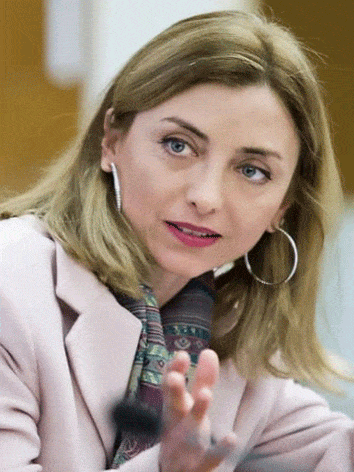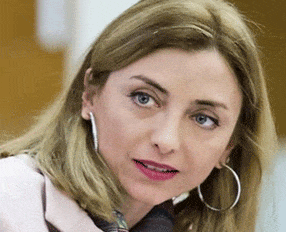
ROSSELLA MIRANDA. Delegate of the Social Promotion Foundation in Italy
Can satire go so far as to offend religious sentiment? Is there a right to blasphemy? Two values are at stake: the free expression of thought and respect for religious faiths. It is legitimate to criticise, even through satire, the contents of a religion, but not so much to border on contempt for the people who believe in that religion.
The conference “Freedom of Expression, the Right to Satire and the Protection of Religious Sentiment” held on 26 February 2021 sought to promote a debate on these issues, bringing together academics and representatives of different religious traditions, and addressing an audience of journalists in particular.
Beyond the pronouncements and judgments, the balance between freedom of expression and the protection of the rights of others can only be based on those human virtues that must always illuminate the work of both jurists and journalists, avoiding extremes: only through dialogue can a path to peace be built and only through dialogue is it possible to better appreciate the needs of others. There is a relational dimension of speech that sets limits on everyone’s freedom of expression. Our very identity includes relationships and this must be taken into account.
These limits seem particularly complicated to manage today in a globalised context in which anyone is able to influence, from the bottom, the affirmation of opinions and feelings.
On the other hand, freedom of expression is not only a fundamental human right, but also a defining aspect of a democratic and pluralist society, as the European Court of Human Rights has insisted and continues to insist. The threat to freedom of expression can lead to the degeneration of the democratic order of a society. Therefore, legal protection is a necessary tool, also with regard to satire, which can represent a reaction to possible abuses of power.
With regard to the protection of religious traditions, a distinction seems significant: If by religious tradition we mean the objective content of a confessional doctrine or of an ideological doctrine in its dogmas, in its beliefs, its protection on the criminal level could result in crimes of opinion generally not allowed because they are in contrast with the freedom of manifestation of thought; but if, on the other hand, by religious tradition we mean the set of rites through which it is currently expressed by a community of believers, i.e. a living, breathing religious tradition, sustained by a community of people, then we fall within the scope of the exercise of the right to religious freedom protected by Article 19 of our (Italian) Constitution and by Article 9 of the European Convention and, therefore, may allow a possible limit to the freedom of expression of thought.
In Europe, the situation is far from clear and does not tend towards a unification of approaches.
In France, it is possible to insult a religion, its figures and symbols, but it is forbidden to insult the followers of a religion. The French legislator has not pronounced on whether blasphemy against a religion is also against its followers. There are countries such as Austria that consider blasphemy to be an offence and others such as Ireland that have abolished the provisions prohibiting blasphemy. The difficulty lies in the fact that offending the followers of a religion or the members of an ethnic group, culture or nation could result in an attack on public order. By emphasising public order, we can save religious peace.
The claimed ideological neutrality of a political culture that asserts to want to build itself on the formation of merely procedural rules of justice, removing all ethical justification and any religious inspiration to protect the freedom of all runs the risk of becoming an ideology of neutrality that, in fact, imposes the marginalisation, if not the exclusion, of religious expression from the public sphere. And a ‘morally neutral’ State, which controls the field of all human judgements, risks calling into question, beyond the criterion of just public order, the freedom of religious communities to organise themselves according to their own principles.
It is also true that it is extremely difficult to establish a precise line once and for all, so one must necessarily rely on the jurisprudence of the Court and establish it case by case. A jurisprudence, therefore, that risks leaving us unsatisfied because it is not linear, it is unstable and it proposes responses that are conditioned by societies.
What is certain is that religious sensitivity, and for some traditions in particular, does not relate only to the church to which one belongs, but has to do with deeper dimensions of the person, linked to his history, his family, his origins. Understanding these sensitivities, taking into account an ethics of knowledge can therefore lead not only to greater respect for others but also to that concept of full citizenship to which Pope Francis also referred in the Encyclical Fratelli Tutti.
Religion plays a central role in the dynamics of social development, since greater protection of religion freedom corresponds to a decrease in social tensions and an increase in social and economic well-being. From this perspective, a certain religious illiteracy, as well as the lack of knowledge and recognition of the role played by religions for a large part of humanity, risks feeding prejudices and stereotypes that contribute to an increase in tensions, misunderstandings and lack of respect.
In this context, the dilemma remains open for journalists who, in carrying out their task of reporting on reality, also have to manage a disrespectful narrative, sometimes contributing to its amplification. Among other things, the development of communications through the internet and social networks opens up hitherto inaccessible potential for social participation and gives exceptional prominence to the manifestations of religions, but also spreads theories and practices that are unduly attributed to them. The forms of expression of religion are among the most exposed to uncontrolled emotionality and misinterpretation. In this context, the role of communication professionals appears even more crucial in conveying correct and considerate information.
The issue remains crucial for the postmodern context in which we move. Modernity has left us with an individualistic and abstract conception of man; in reality, each one of us is always a concrete person, in relation with other people and that is why, as stated above, mutual knowledge becomes a duty.
The Centre for Middle East Studies -CEMO, one of the promoters of the Conference, moved in this direction. The Think Thank was set up by the Social Promotion Foundation -FPS, a Spanish national organisation committed to defending the dignity of the person. Since 2004, CEMO has been encouraging exchanges and in-depth studies to promote dialogue and knowledge also between different religious traditions, in the conviction that where the religious factor continues to be mistakenly used to fuel extremism and violence, dialogue can be part of the solution.
Just as the commitment to safeguarding religious freedom has always been a priority in the work carried out by CEMO. “We witness, through our daily work in the Middle East, the successes and failures, the progress and setbacks, the hopes and frustrations of the people who live there. There is an urgent need to propose serious solutions for peace and firm commitments to re-establish the authority of States, taking into account the importance of religious freedom as a tool for cohesion and integration of different religious minorities with equal rights at all levels,” reiterated Jumana Trad, President of the Foundation, during a major Symposium recently organised in Italy.
If we want to remain within a European framework, we cannot fail to consider that the impressive season of migration of entire peoples is creating, within the West, societies that are structurally interreligious, intercultural and interethnic. It seems urgent to evaluate whether the current models of the relationship between religious freedom and civil democracy are still valid. But, once again, the starting point is the need for deeper knowledge and the desire for quiet mutual recognition. This is the basis of the Centre for Middle East Studies’ commitment for the near future.





